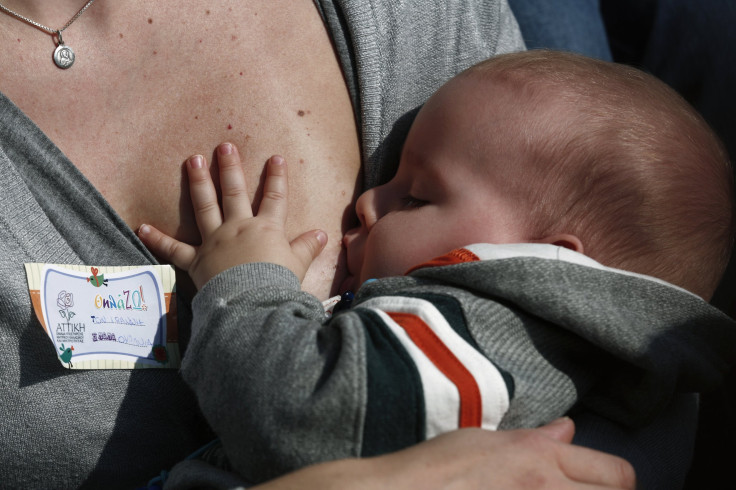World Breastfeeding Week: A Reason For The Mothers To Celebrate

This week marks World Breastfeeding Week around the world with the theme “Women and work -- Let’s make it work.” The theme emphasizes the need to develop policies and practices to facilitate a smooth workplace culture for nursing mothers, providing them the opportunity to breastfeed their babies while they are at work.
Breastfeeding in a natural process that comes with a number of benefits for both infant and mother. A number of studies have found breastfed babies have higher intelligence and are less likely to develop ear or throat infections later in life. In addition, it is believed children who are breastfed are less likely to become obese adults while mothers have a reduced chance of developing some forms of cancer, including breast and ovarian cancer.
"We know that breastfeeding helps children to survive and thrive -- enabling infants to withstand infections, providing critical nutrients for the early development of their brains and bodies, and strengthening the bond between mothers and their babies. And the benefits of breastfeeding last a lifetime,” said Dr. Anthony Lake of Unicef, and Dr. Margaret Chen of the World Health Organization, in a joint statement.
The World Health Assembly has established a goal of reaching a breastfeeding rate of 50 percent by 2025 for children aged 0 to six months. Lake and Chen said to reach that goal, it is important to remove all the barriers that prevent mothers from breastfeeding. They suggest governments should make breastfeeding a policy and work in close association with families and the community to raise awareness.
It is estimated there are nearly 830 million working women in the world. However, a majority of such women receive no benefit from workplace policies in terms of an opportunity to breastfeed.
© Copyright IBTimes 2024. All rights reserved.











